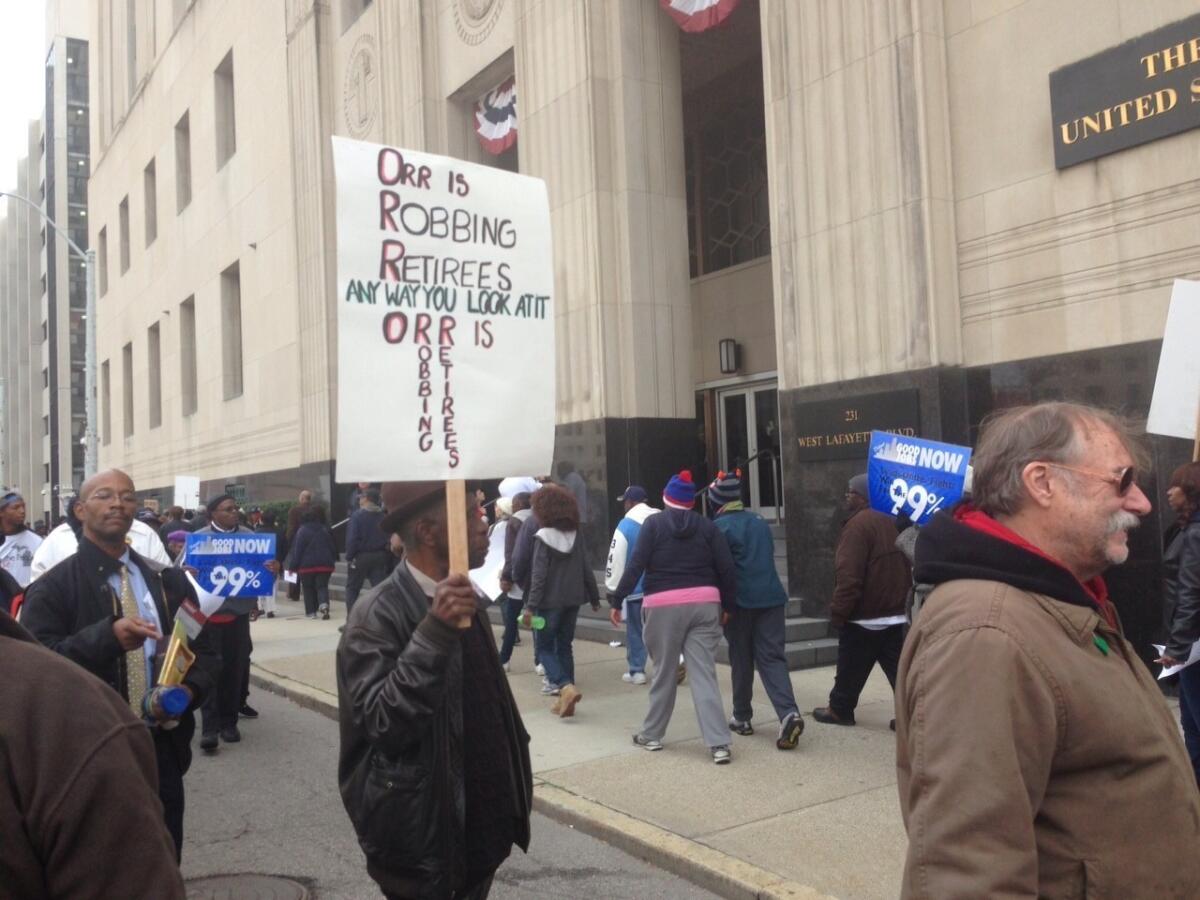Key ruling on Detroit bankruptcy due Tuesday

Tens of thousands of Detroiters are waiting anxiously for 10 a.m. Tuesday. That’s when they’ll hear from Judge Stephen Rhodes whether the city is eligible for bankruptcy protection, a decision that could affect pensions, city services and healthcare for residents.
Detroit filed for bankruptcy protection July 18, making it the biggest municipality to file for Chapter 9. But it is up to Rhodes, a federal bankruptcy judge, to decide whether the city negotiated in good faith with creditors before applying for Chapter 9, and whether it was truly insolvent.
Most legal experts expect Rhodes to declare that Detroit is eligible for bankruptcy protection.
Few argue that Detroit is in bad fiscal shape. A June proposal for creditors mapped out the grim details: Property tax revenue had fallen 20% over the last five years, the general fund runs a growing deficit, and the city was not paying pension contributions as they came due. By the time Detroit filed for bankruptcy, officials estimated the city had $18 billion in debt, although a report by former investment banker Wallace Turbeville of the Demos public policy organization called that figure into question.
The more controversial issue is whether the city negotiated in good faith with creditors before filing for Chapter 9. Unions say that Michigan’s Republican governor, Rick Snyder, chose an emergency manager for the city with the idea that the manager, Kevyn Orr, would lead Detroit through bankruptcy, thus shirking some pension obligations. They say that they presented the city with some cuts to pension obligations but that the city would not pursue that avenue. Unions also note that Michigan’s Constitution protects pensions, and argue that bankruptcy is unconstitutional.
Rhodes is unlikely to rule on the complicated issues of pensions and the state’s Constitution on Tuesday, said Michael Sweet, a San Francisco-based bankruptcy attorney at the law firm Fox Rothschild. The judge will most probably rule only on the question before him: whether the city is eligible for Chapter 9.
“Detroit hasn’t yet said what it’s going to do with pensions – all it’s done is walk up to the court and said, ‘Can we please come in?”’ Sweet said. “The only question the judge is ready to answer is, ‘May we enter?’”
If Rhodes grants Detroit bankruptcy protection, the city must then present a restructuring plan to the court. Creditors will weigh in on that plan, and Rhodes will rule on that as well.
That will probably be a difficult process. Although Orr has not specifically said he will cut pensions, he has said some adjustments need to be made to deal with $3.5 billion in unfunded liabilities. Unions fervently disagree with this idea, saying that many retirees had planned their finances based on these pensions, and would have difficulty surviving without them. Unions organized protests outside the bankruptcy court during the hearing, culminating on the day Orr testified.
It’s difficult to know how long it will take to move on to the next step, whatever it may be, even though Detroit’s bankruptcy proceedings have moved much more quickly than similar cases in Stockton and San Bernardino. San Bernardino filed for bankruptcy protection in August 2012, and it took a year for a judge to find the city eligible. Stockton filed in June 2012 and was declared eligible in April.
In Detroit, by contrast, Rhodes is making his decision a little more than four months after the city applied for bankruptcy protection.
“What you’re seeing is a hyper fast track with Detroit,” Sweet said.
ALSO:
Detroit’s bankruptcy brings up more than finances
Digging into Detroit’s bankruptcy filing
Detroit’s bankruptcy may lead to more chaos
Twitter: @AlanaSemuels
More to Read
Start your day right
Sign up for Essential California for news, features and recommendations from the L.A. Times and beyond in your inbox six days a week.
You may occasionally receive promotional content from the Los Angeles Times.







